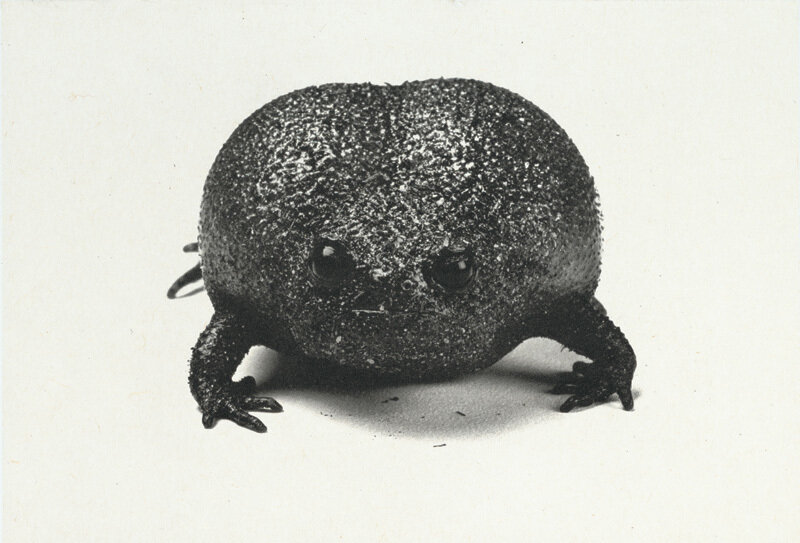Discover Exotic Rain Frog for Sale: Your Portal to Special Amphibian Pets!
Discover Exotic Rain Frog for Sale: Your Portal to Special Amphibian Pets!
Blog Article
Common Wellness Issues in Reptiles: Symptoms and Solutions
In the detailed world of reptile care, recognizing the typical health concerns that may affect these one-of-a-kind creatures is vital in ensuring their wellness. Whether it's grappling with parasitic invasions, navigating dehydration concerns, or dealing with skin conditions that materialize in subtle ways, being attuned to the signs and furnished with the expertise of effective remedies is crucial for any type of reptile proprietor.
Respiratory System Infections
Respiratory system infections in reptiles can substantially influence their overall health and need punctual focus from experienced vets. These infections are typically created by fungis, infections, or bacteria and can show up through symptoms such as wheezing, nasal discharge, open-mouth breathing, and sleepiness. In reptiles, respiratory system infections can be specifically testing to diagnose and treat due to their special composition and physiology. Vets often rely on a mix of health examinations, diagnostic imaging, and laboratory examinations to properly recognize the underlying reason for the infection.
Therapy for respiratory system infections in reptiles typically entails a mix of supportive treatment, such as maintaining correct humidity degrees and temperature gradients in the enclosure, in addition to targeted medication to resolve the particular pathogen in charge of the infection. It is vital for reptile proprietors to check their family pets closely for any kind of indications of respiratory distress and look for veterinary treatment at the earliest indicator of an issue. With prompt intervention and proper therapy, lots of reptiles can recuperate totally from breathing infections and return to typical tasks.

Metabolic Bone Disease
What aspects add to the development of Metabolic Bone Illness in reptiles?
Metabolic Bone Condition (MBD) in reptiles is primarily caused by a lack of appropriate calcium, phosphorus, and vitamin D3 levels in their diet plan. Furthermore, insufficient exposure to UVB light avoids reptiles from synthesizing vitamin D3, which is important for calcium absorption and bone health and wellness.
Not enough moisture degrees can likewise affect a reptile's capability to metabolize calcium efficiently. Regular veterinary check-ups, appropriate husbandry techniques, and a balanced diet regimen are essential to prevent Metabolic Bone Illness in reptiles.
Parasitic Problems
Parasitic problems pose a significant health and wellness risk to reptiles, impacting their overall well-being and requiring timely veterinary attention. Reptiles can be influenced by different bloodsuckers, including termites, ticks, internal worms, and protozoa. These bloodsuckers can create a variety of signs, such as weight loss, sleepiness, skin irritability, looseness of the bowels, and also fatality if left neglected.
One typical parasite located in reptiles is the mite, which can cause skin inflammation, stress and anxiety, and anemia. Ticks are an additional external parasite that can cause and send illness pain to the reptile. Inner parasites like worms and protozoa can lead to digestive problems, lack of nutrition, and weaken the reptile's immune system.
To diagnose a parasitical invasion, a vet may do fecal examinations, skin scrapings, or blood examinations. Therapy often involves deworming medications, antiparasitic baths, or in extreme cases, hospitalization. Preventative measures such as regular vet exams, correct health, and quarantine procedures for new reptiles can help reduce the risk of parasitic infestations and make certain the health of reptile family pets.
Dehydration and Hydration Issues
Dehydration in reptiles can substantially influence their wellness and wellness, necessitating timely intervention and ideal hydration administration. Reptiles are vulnerable to dehydration because of different factors such as insufficient water intake, high environmental temperature levels, and certain health conditions. Signs and symptoms of dehydration in reptiles consist of sunken eyes, sleepiness, loss of skin flexibility, and decreased urination. If left neglected, dehydration can bring about major wellness issues and also be fatal to the reptile.
To stop dehydration, reptile owners ought to guarantee that their pet dogs have access to tidy water in all times. The water meal should be huge enough for the reptile to saturate in if required, particularly for species that absorb water via their skin. Additionally, keeping appropriate humidity degrees in the reptile's unit and offering regular bathrooms can help stop dehydration.
In instances of dehydration, it is critical to seek vet treatment immediately. A veterinarian might carry out fluids either article orally or with shots to rehydrate the reptile. It is vital to address the underlying root cause of dehydration to stop reappearance and guarantee the reptile's general well-being.
Skin Conditions

Conclusion

Respiratory system infections in reptiles can dramatically influence their general health and call for timely focus from official statement seasoned veterinarians (rain frog for sale). Preventative measures such as normal veterinary check-ups, correct hygiene, and quarantine treatments for brand-new reptiles can aid reduce the threat of parasitic invasions and make sure the wellness of reptile pets
If left untreated, dehydration can lead to significant wellness concerns and also be fatal to the reptile.
Consistently checking your reptile for any adjustments in skin texture, shade, or appearance can assist in early detection and therapy of skin ailments, advertising the overall health and wellness and well-being of your scaly friend. - rain frog for sale
In conclusion, reptiles are susceptible to numerous health and wellness concerns such as breathing infections, metabolic bone condition, parasitical infestations, dehydration, and skin disorders.
Report this page